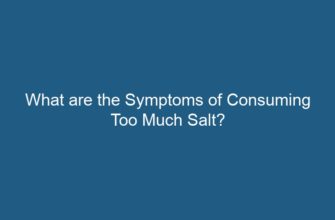Blood in the stool, also known as rectal bleeding, is a concerning symptom that should never be ignored. It can indicate various underlying conditions, ranging from minor issues to more serious medical conditions. In this comprehensive article, we will explore the potential causes of blood in the stool, including their symptoms, diagnostic methods, and treatment options.
- 1. Hemorrhoids
- a) Internal Hemorrhoids
- b) External Hemorrhoids
- 2. Anal Fissures
- 3. Gastrointestinal Infections
- 4. Inflammatory Bowel Disease (IBD)
- 5. Diverticular Disease
- 6. Colorectal Cancer
- 7. Peptic Ulcers
- FAQs
- 1. Can stress or anxiety cause blood in the stool?
- 2. Is blood in the stool always a sign of a serious condition?
- 3. How is the cause of blood in stool diagnosed?
- 4. What are the treatment options for blood in the stool?
- 5. Can diet affect blood in the stool?
- 6. When should I seek immediate medical attention for blood in the stool?
- Conclusion
1. Hemorrhoids
Hemorrhoids are one of the most common causes of blood in the stool. These are swollen blood vessels located in the rectum or anus that can become irritated and bleed during bowel movements. There are two types of hemorrhoids:
a) Internal Hemorrhoids
Internal hemorrhoids occur inside the rectum and are usually painless. The most common symptom is bright red blood on the surface of the stool or on the toilet paper after wiping. Other symptoms may include itching, discomfort, and a feeling of incomplete bowel movement.
b) External Hemorrhoids
External hemorrhoids develop under the skin around the anus and can be felt as bulges or lumps. They can cause pain, itching, and bleeding, usually noticed as blood on the toilet paper or in the toilet bowl.
2. Anal Fissures
An anal fissure is a small tear in the lining of the anus, often caused by passing hard or large stools. It is a common condition, especially in infants and young children. The main symptom is bright red blood on the surface of the stool or on the toilet paper. Additional symptoms may include pain during bowel movements and itching.
3. Gastrointestinal Infections
Gastrointestinal infections, such as bacterial or viral gastroenteritis, can also lead to blood in the stool. These infections cause inflammation of the digestive tract, which can result in bleeding. Common symptoms include abdominal pain, diarrhea, nausea, and vomiting.
4. Inflammatory Bowel Disease (IBD)
Inflammatory bowel disease, including Crohn’s disease and ulcerative colitis, is a chronic condition that causes inflammation in the digestive tract. Bloody stool is a common symptom of both diseases. Other symptoms may include abdominal pain, diarrhea, weight loss, and fatigue.
5. Diverticular Disease
Diverticular disease refers to the formation of small pouches, called diverticula, in the colon. When these pouches become inflamed or infected, it leads to a condition called diverticulitis. One of the symptoms of diverticulitis is rectal bleeding. Additional symptoms may include abdominal pain, fever, and changes in bowel habits.
6. Colorectal Cancer
Colorectal cancer is a malignant growth in the colon or rectum. It can cause blood in the stool, often appearing dark or black. However, in some cases, it may also be bright red. Other symptoms of colorectal cancer include abdominal pain, changes in bowel habits, unintended weight loss, and fatigue.
7. Peptic Ulcers
Peptic ulcers are open sores that develop in the lining of the stomach or the upper part of the small intestine. They can cause bleeding, resulting in the presence of blood in the stool. Peptic ulcer symptoms may include abdominal pain, nausea, vomiting, and indigestion.
FAQs
1. Can stress or anxiety cause blood in the stool?
No, stress or anxiety itself does not directly cause blood in the stool. However, chronic stress can contribute to digestive issues, such as diarrhea or constipation, which might lead to rectal bleeding in some cases.
2. Is blood in the stool always a sign of a serious condition?
While blood in the stool can indicate serious conditions, such as colorectal cancer, it can also be caused by less severe issues like hemorrhoids or anal fissures. Nevertheless, it is essential to consult a healthcare professional to determine the underlying cause.
3. How is the cause of blood in stool diagnosed?
The diagnosis of blood in the stool involves a thorough medical history evaluation, physical examination, and various diagnostic tests. These may include stool tests, colonoscopy, flexible sigmoidoscopy, blood tests, and imaging studies (such as CT scans or MRI).
4. What are the treatment options for blood in the stool?
Treatment for blood in the stool depends on the underlying cause. For minor issues like hemorrhoids or anal fissures, conservative measures such as dietary changes, increased fluid intake, and topical creams may be sufficient. However, more serious conditions may require medication, surgery, or other interventions.
5. Can diet affect blood in the stool?
Yes, certain foods can trigger or worsen digestive conditions that lead to blood in the stool. Spicy foods, alcohol, caffeine, and high-fat foods are known to irritate the digestive system. It is advisable to maintain a balanced diet and consult a healthcare professional for personalized dietary recommendations.
6. When should I seek immediate medical attention for blood in the stool?
Immediate medical attention is necessary if you experience severe rectal bleeding, persistent abdominal pain, dizziness, fainting, or signs of shock. These symptoms may indicate a severe condition that requires immediate intervention.
Conclusion
Blood in the stool is a concerning symptom that can have various causes. While some cases may be relatively benign, others may indicate underlying medical conditions that require prompt attention. It is crucial to consult a healthcare professional for an accurate diagnosis and appropriate treatment. Do not ignore rectal bleeding, as early detection and intervention can significantly improve outcomes.










